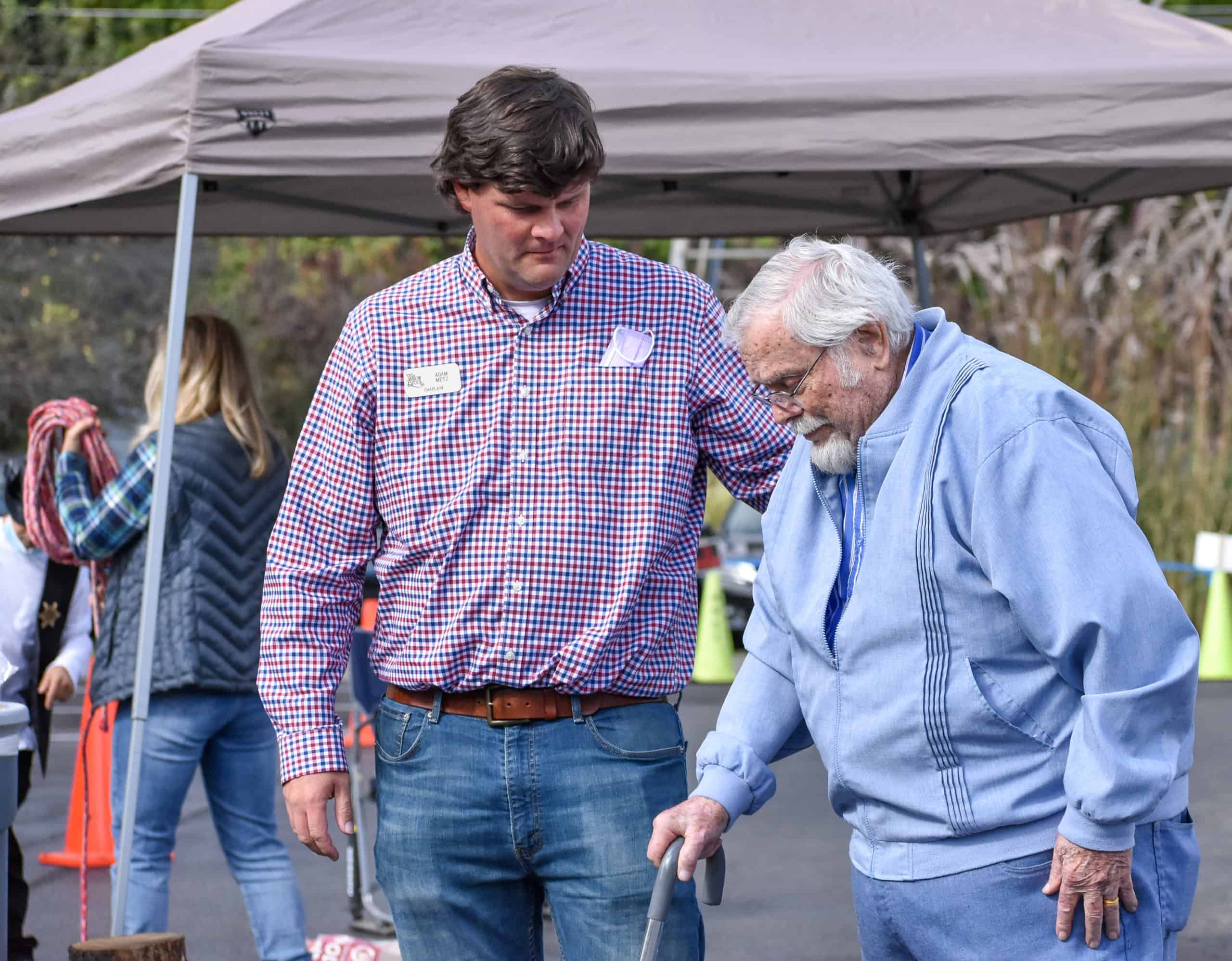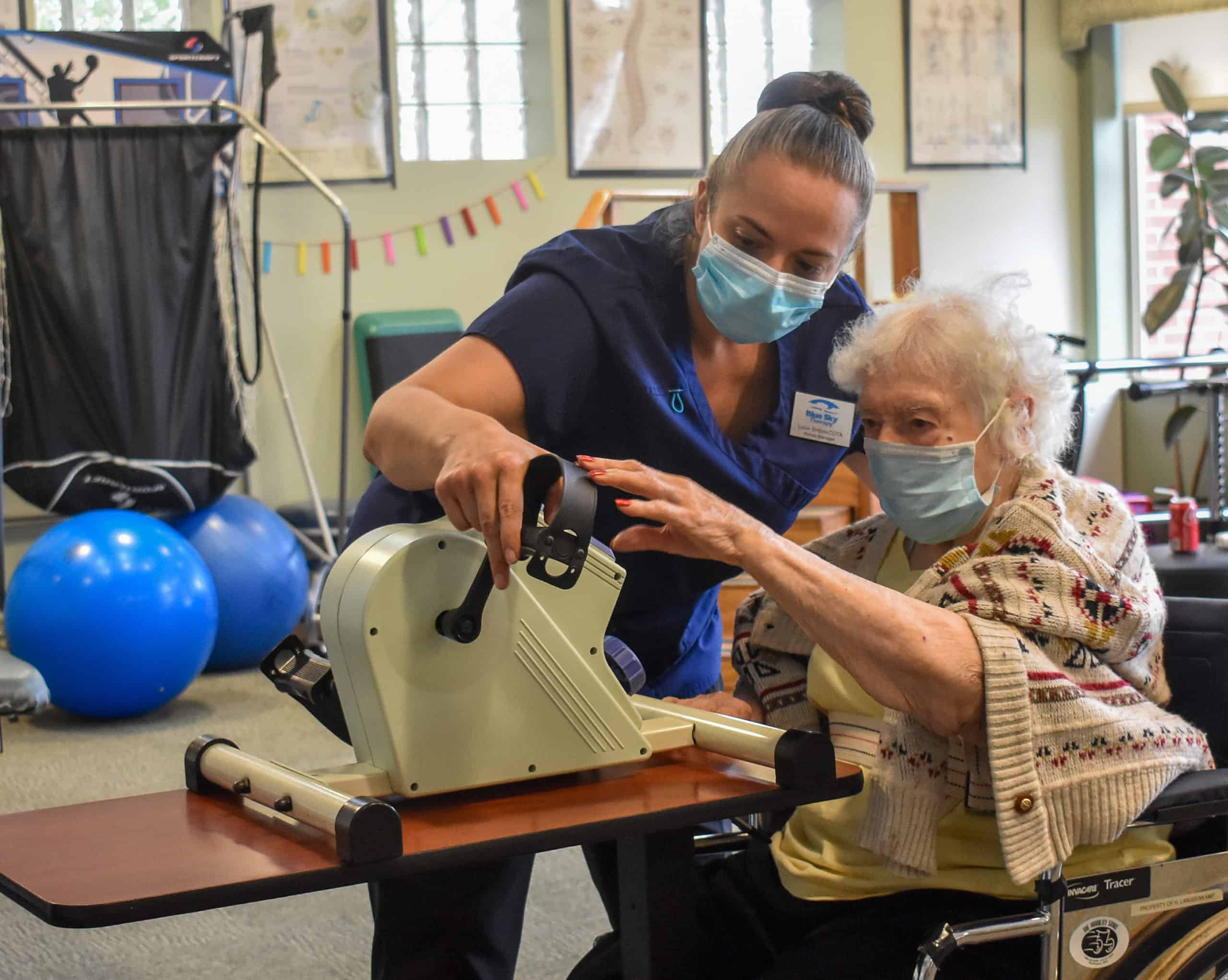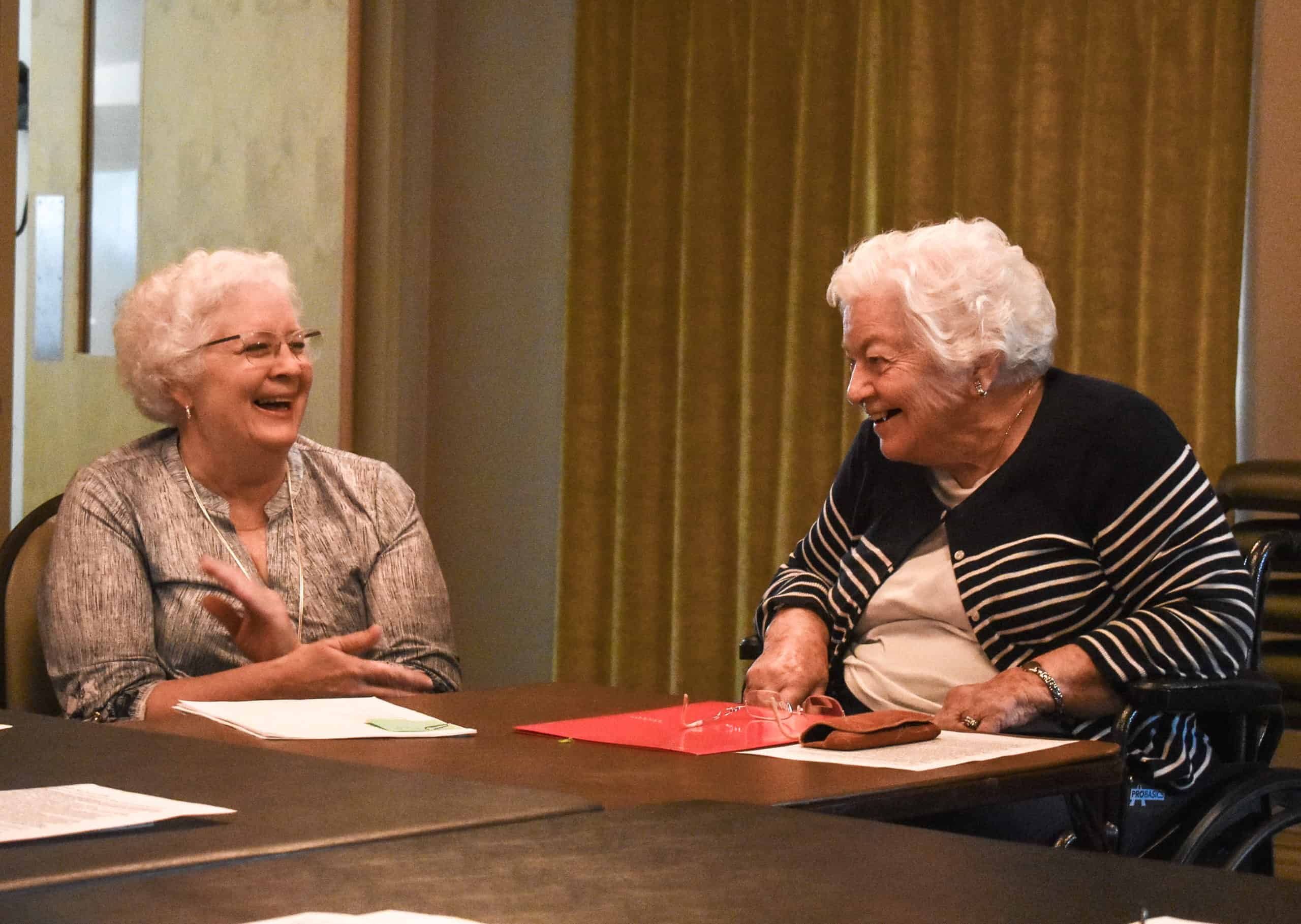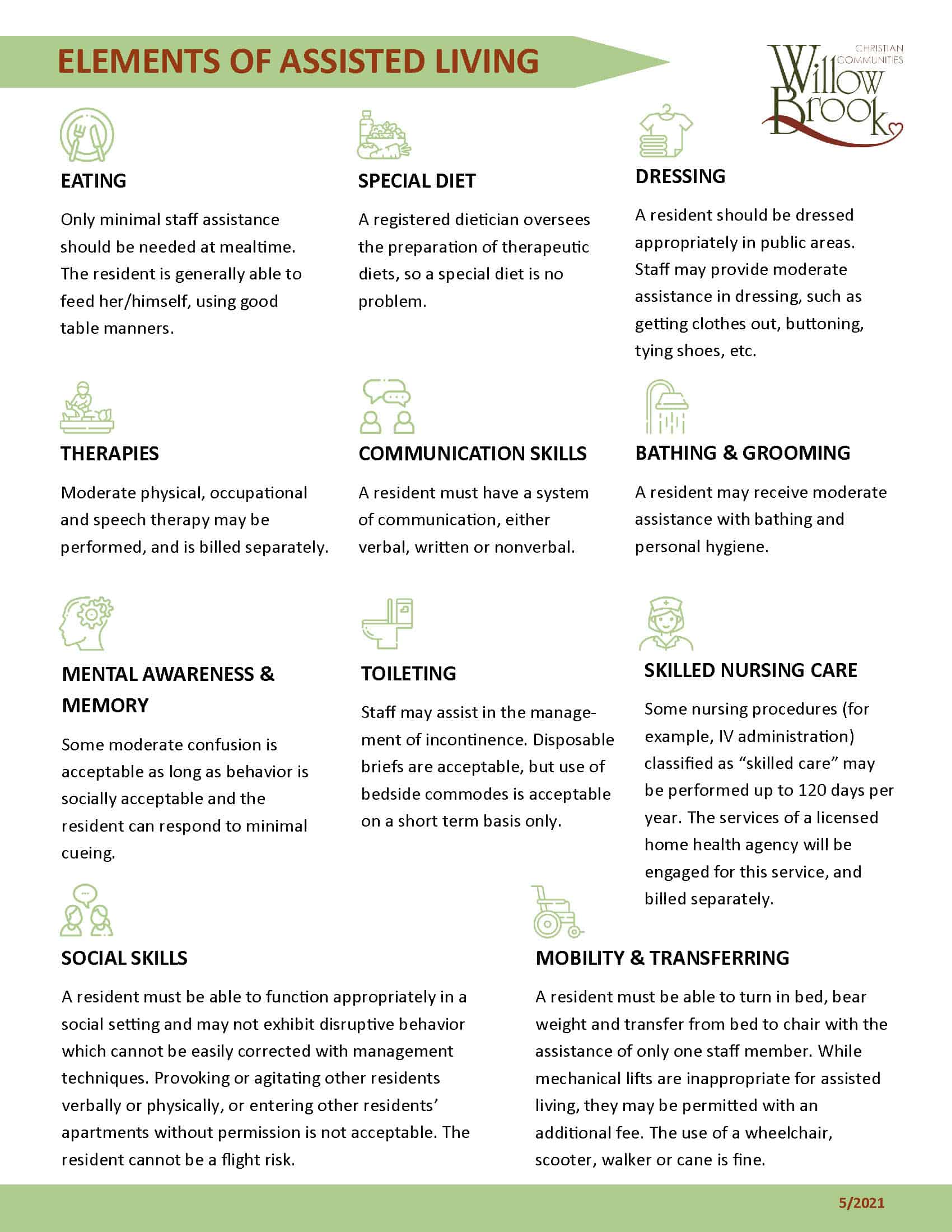What is Assisted Living and How Do I Pay for It?
Most people have heard the term “assisted living.” Although assisted living is not the same as nursing home care, many think the two are interchangeable. There is also a common misperception that insurance pays for assisted living, which it does not. Our goal in this post is to share some information about what assisted living is and how to pay for it, to get your senior living journey off on the right foot.
For starters, it is never too early to start planning. If you are reading this and have not saved a dime for future care, you can start today. Care costs have been known to produce significant “sticker shock.” Start planning and educating yourself now so that you are prepared when the time comes.
Second, it helps to envision what assisted living looks like on a day-to-day basis. To that end, Willow Brook has created a handy guide to help you find the right fit. By looking over this guide and honestly answering the questions on each page, you can get a sense of what you need and do not need and what you are looking for in a senior living community. You can also take a look at the infographic below, which spells out a few more details about the nitty-gritty of assisted living. (NOTE: This is a guideline of general expectations only. A personalized care plan is developed for each resident based on their specific needs.)
Heidi Reed, the director of assisted living at Willow Brook at Delaware Run, often works with families who cannot decide whether or not mom or dad or another loved one need assisted living, or are resistant to the idea. She suggests asking the following question: If (my loved one) had to live and function on their own without any outside help or services (even from family), would they be safe? If the answer is no, that is a good indication that assisted living or some other level of care is needed for the safety and well-being of your loved one (or you). Willow Brook also provides independent living, transitional living, memory care, skilled nursing care, respite stays, and an adult day program. Reach out to us through our website inquiry form or give us a call at 740-201-5640 to learn more.

We have assisted living at all three of our campuses: Willow Brook Christian Home, Willow Brook Christian Village, and Willow Brook at Delaware Run.
When it comes to paying for care, most people pay for themselves (referred to as “private pay”) using savings, income, retirement funds, etc., but there are some other options. Long-term care insurance and veteran’s benefits are two other possible ways to meet expenses. While many people assume private insurance will help pay for senior living costs, traditional plans do not pay for care, and neither does Medicare. But a long-term care insurance policy is specifically designed to help with these costs. However, fewer than 1 in 30 Americans (and only seven percent of adults age 50 and older) have long-term care insurance policies, although an estimated 50-70 percent of older adults will need long-term care at some point in their lives.

We have two skilled care facilities: Willow Brook Christian Home and Willow Brook Christian Village. All three of our campuses offer therapy services for residents as well.
If by chance you have paid into a long-term care policy, now is a good time to read the fine print of what your policy will (and will not) provide. All policies are different, but most usually pay a daily reimbursement rate if care needs meet the policy’s criteria. Typically a policyholder must need help with a pre-determined number of activities of daily living (ADLs), such as bathing, dressing, and toileting to be eligible. Reach out to your insurance professional for more information. If you do not have this type of insurance and think you may want it, experts often suggest waiting until age 60-65 before purchasing. Check out this article for more information.
Another option to help with costs requires previous service in the military, and specific criteria must be met: service during wartime or conflict, an honorable discharge, and an asset limit, among other things. The most common program is the VA Aid and Attendance benefit. You can find out more about it here. If you are a surviving spouse of a veteran, you may also be eligible for assistance. Start by reaching out to your County Veterans Service Office—if you are in Ohio, click here to find yours.

We also offer independent living at our two Delaware campuses, Willow Brook at Delaware Run and Willow Brook Christian Village.
If you have made it all the way to the end of this blog post, we hope you have gained some new information and feel more knowledgeable about assisted living. And if you still have questions, please call us at 740-201-5640. We are your companions on this journey. We also invite you to check out our blog.

